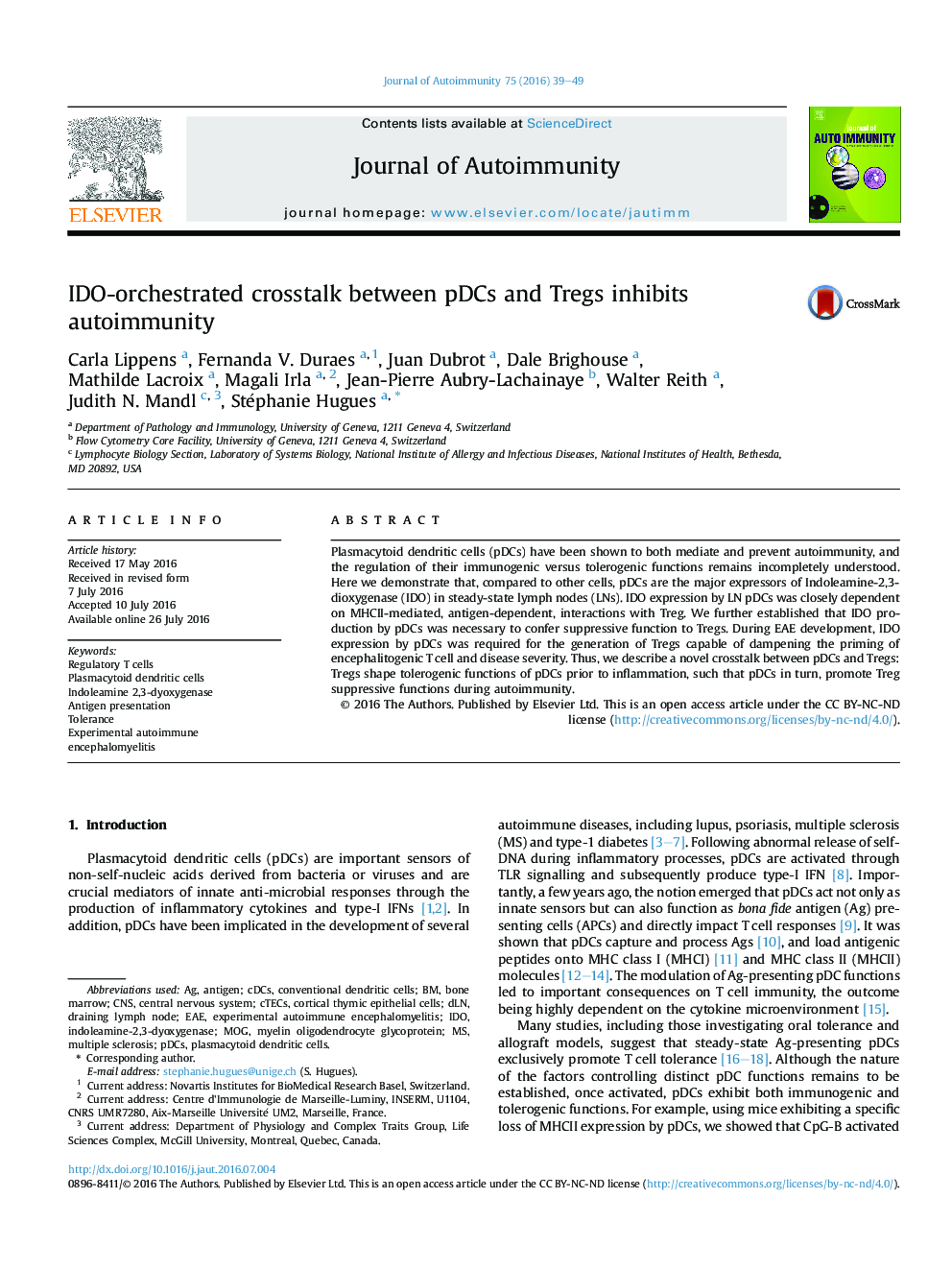| Article ID | Journal | Published Year | Pages | File Type |
|---|---|---|---|---|
| 5667947 | Journal of Autoimmunity | 2016 | 11 Pages |
â¢IDO expression by LN pDCs is closely dependent on MHCII-mediated, antigen-dependent, interactions with Tregs.â¢pDCs are the predominant source of IDO in both steady-state and inflamed lymph nodes.â¢IDO production by pDCs is necessary to confer suppressive function to Tregs in EAE.
Plasmacytoid dendritic cells (pDCs) have been shown to both mediate and prevent autoimmunity, and the regulation of their immunogenic versus tolerogenic functions remains incompletely understood. Here we demonstrate that, compared to other cells, pDCs are the major expressors of Indoleamine-2,3-dioxygenase (IDO) in steady-state lymph nodes (LNs). IDO expression by LN pDCs was closely dependent on MHCII-mediated, antigen-dependent, interactions with Treg. We further established that IDO production by pDCs was necessary to confer suppressive function to Tregs. During EAE development, IDO expression by pDCs was required for the generation of Tregs capable of dampening the priming of encephalitogenic T cell and disease severity. Thus, we describe a novel crosstalk between pDCs and Tregs: Tregs shape tolerogenic functions of pDCs prior to inflammation, such that pDCs in turn, promote Treg suppressive functions during autoimmunity.
Graphical abstractDownload high-res image (209KB)Download full-size image
